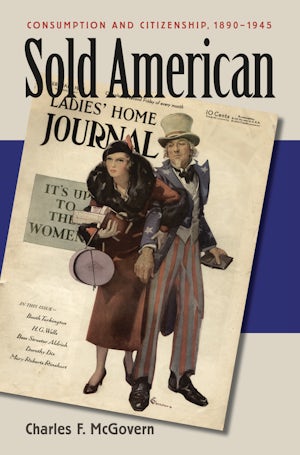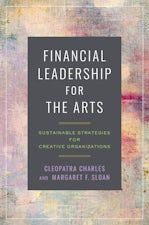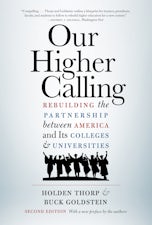Sold American
Consumption and Citizenship, 1890-1945
By Charles F. McGovern
552 pp., 6.125 x 9.25, 50 illus., notes, bibl., index
-
Paperback ISBN: 978-0-8078-5676-5
Published: October 2006 -
E-book EPUB ISBN: 978-0-8078-7664-0
Published: January 2009 -
E-book PDF ISBN: 979-8-8908-7117-6
Published: January 2009
Buy this Book
- Paperback $51.00
- E-Book $29.99
For Professors:
Free E-Exam Copies
Advertisers, McGovern shows, used nationalist ideals, icons, and political language to define consumption as the foundation of the pursuit of happiness. Consumer advocates, on the other hand, viewed the market with a republican-inspired skepticism and fought commercial incursions on consumer independence. The result, says McGovern, was a redefinition of the citizen as consumer. The articulation of an "American Way of Life" in the Depression and World War II ratified consumer abundance as the basis of a distinct American culture and history.
About the Author
Charles F. McGovern is associate professor of American studies and history at the College of William and Mary and a former curator at the National Museum of American History in Washington, D.C. He is coeditor of Getting and Spending: European and American Consumer Societies in the Twentieth Century.
For more information about Charles F. McGovern, visit
the
Author
Page.
Reviews
"Masterful. . . . Powerfully argued and deeply researched."--Journal of Contemporary History
"Thoroughly researched, deeply grounded in archival collections, iconography, and secondary literature, and wonderfully illustrated with telling advertising imagery."--Register of the Kentucky Historical Society
"Particularly valuable in that McGovern argues persuasively."--American Journalism
"The latest addition to the important new literature on the political economy of consumer capitalism. . . . Represents a sturdy contribution to our thinking about what is arguably the most important question in contemporary American history."--Indiana Magazine of History
"McGovern's long awaited book rewards our patience as scholars with its exemplary study of how we lost our patience as a polity of consumers."--American Historical Review
"A finely wrought, lavishly illustrated volume. . . . Highly recommended."--CHOICE




